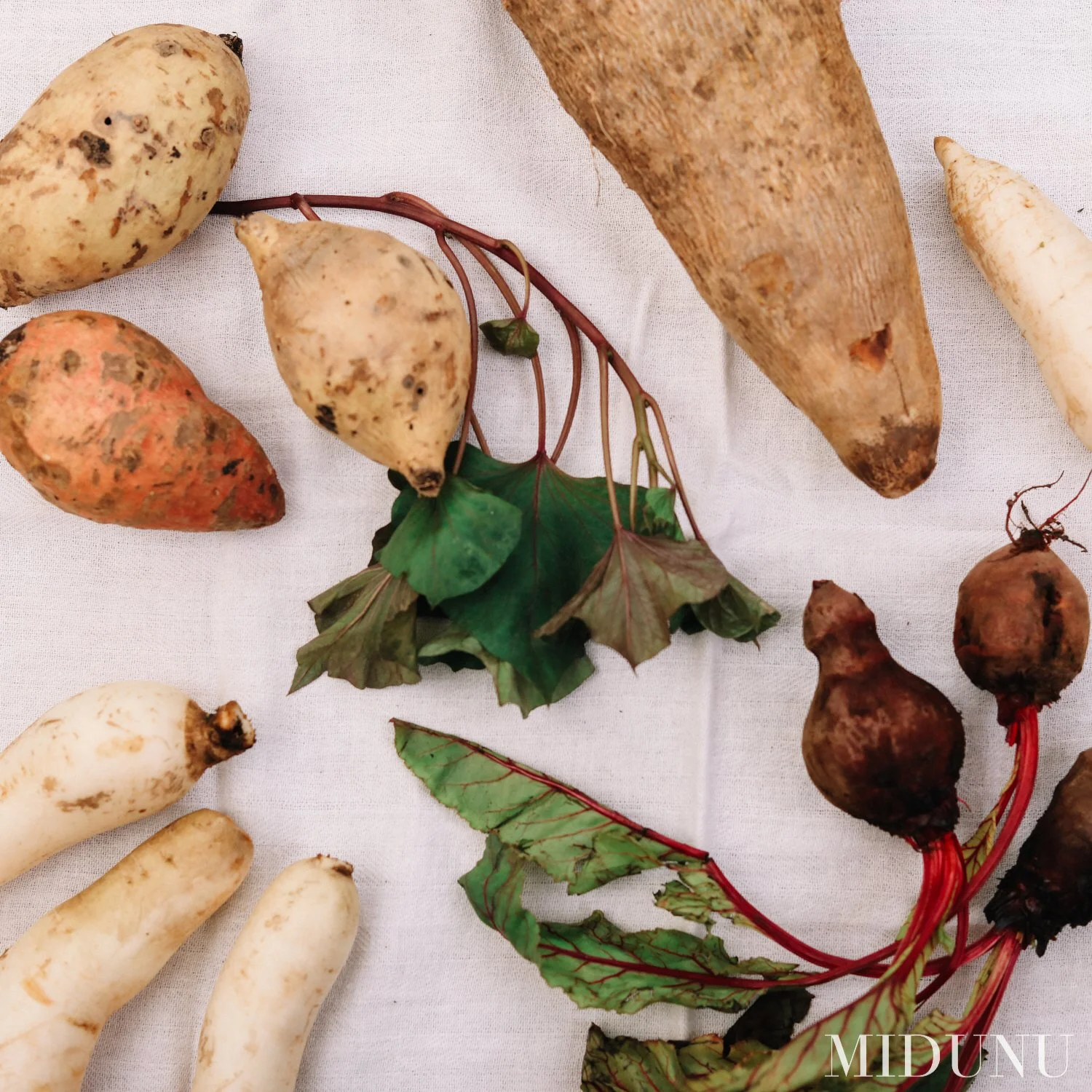What the Garden Teaches: Slowness, Seasons, and the Long Table
I used to think that success came from speed.
From endless producing, endless performing.
That if I could just move faster—serve more, scale more, be more—I would finally arrive.
Then I started listening to my garden.
It wasn’t built for speed.
It was built for rhythm.
And like most things on this continent, it reminded me that there is a time for everything: a time to bloom, a time to dry, a time to rest, a time to begin again.
During COVID, when we had to close our kitchen, I invested in the garden as a way to reconnect with what we might build when we returned.
I soon realized how difficult it was to access indigenous seeds. Seed sharing wasn’t straightforward, and the local markets had only a limited selection.
So I began reaching out—to aunties, elders, friends—and slowly, the stories came.
What began as planting became a process of decoding.
The medicinal and culinary uses of so many plants had been passed on orally, quietly.
And yet they held so much knowledge.
Now, we’re in quiet conversation with the Ghanaian seed bank, exploring a collaboration to integrate more neglected and underutilized species into our garden—and onto our menu.
We’ve also partnered with a women-led gardening team that helps us tend and learn from this space. Their hands carry a different kind of knowledge.
Right now, we’re growing sweet potatoes in two ways:
Deep, for the tubers
Shallow, to prioritize a regular harvest of the leaves
Those leaves are already finding their way into our dishes.
This season, we're preparing for a menu inspired by the journeys of the diaspora (June to August), featuring gumbo.
We're growing several types of okra for it.
I'm also dreaming of a stuffed okra flower for our September to November menu.
I don't yet know if okra flowers are edible.
But we are planting. Watching. Learning. Even if it doesn’t work, it will have taught us something. And that, too, is part of the harvest.
Because this is what the garden teaches:
How to wait.
How to experiment.
How to listen.
At Midunu, the garden isn’t just where we grow herbs.
It’s where we test ideas.
Where we reset.
Where we remember what it feels like to follow a slower wisdom.
And yes, sometimes we serve guests in the garden—under the sky, with smoked water or edible flowers.
But most of our meals remain indoors.
The heat and the insects are real, especially over three hours.
Still, for those who ask, we say yes.
There is something magical about the moonlight.
Moonlight has its own flavor.
This wasn’t the version of success I was taught.
But it might be the version I believe in.
Because when I walk through the garden now,
I don’t hear "hustle."
I hear "listen."
I hear "wait."
I hear "you’re not behind—you’re exactly where you need to be."
So this week, I’m honoring the slowness.
The patience.
The meals that unfold like the seasons—not rushed, not perfect, but deeply rooted.
The imperfect tenderness of things grown slowly.
➡ For reflections on African foodways, sustainability, and the future of flavor, explore the full archive.
